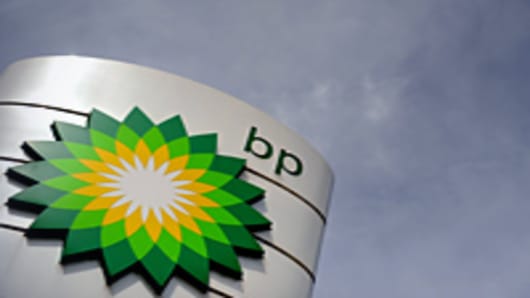BP is facing increased demands for collateral and other assurances from some of its trading partners in the aftermath of the Gulf spill, say people familiar with the matter.
In recent weeks, Credit Suisse has asked BP to post collateral, securities or cash used to ensure that the oil company will make good on its trading debts, on any transactions valued at more than $10 million, says one of these people. That’s a change from Credit Suisse’s past policy of only asking for collateral on trades valued at more than $30 million, this person says, and was likely prompted by recent ratings downgrades.
The new policy at Credit Suisse follows a curb placed on long-term trades with BP by Bank of America earlier this month. At the same time, some of BP’s other trading partners, or counterparties, are asking for letters of credit from banks to guarantee that BP will make good on future trading debts, says one of the people familiar with the matter.
A spokesman for Credit Suisse declined to comment.
BP is a huge global trader of oil, natural gas, and power, running a global operation employs more than 1,000 people, estimate industry rivals. As part of that business, it trades with other oil companies like Exxon Mobil and Royal Dutch Shell .
But BP also trades with major financial companies like Morgan Stanley, Goldman Sachs , and Credit Suisse.
Since April 20, when a deepwater well owned by BP exploded, leaking hundreds of thousands of barrels of crude oil into the Gulf of Mexico, the UK oil company has been under increasing financial pressure. In recent weeks, Moody’s, Standard & Poor’s, and Fitch lowered their credit ratings on the company, triggering collateral demands and raising concerns among some major investors.
As a result, an expected BP corporate bond offering of $5 billion or more has been slow to get off the ground, say people familiar with the matter.
Late last week, BP managed to raise a total of $5 billionfrom bank lenders in a combination of secured and unsecured loans, say the people familiar with the matter. A portion of that $5 billion came from Credit Suisse, according to a report in the Wall Street Journal over the weekend, and was backed by BP’s stake in the Russian oil company OAO Rosneft.
Programming note: "The Strategy Session," hosted by David Faber and Gary Kaminsky, airs weekdays at Noon ET on CNBC.



